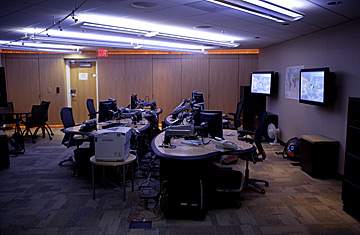
The FBI appears to have begun using a novel form of electronic surveillance in criminal investigations: remotely activating a mobile phone’s microphone and using it to eavesdrop on nearby conversations.
The technique is called a “roving bug,” and was approved by top U.S. Department of Justice officials for use against members of a New York organized crime family who were wary of conventional surveillance techniques such as tailing a suspect or wiretapping him.
Nextel cell phones owned by two alleged mobsters, John Ardito and his attorney Peter Peluso, were used by the FBI to listen in on nearby conversations. The FBI views Ardito as one of the most powerful men in the Genovese family, a major part of the national Mafia.
The surveillance technique came to light in an opinion published this week by U.S. District Judge Lewis Kaplan. He ruled that the “roving bug” was legal because federal wiretapping law is broad enough to permit eavesdropping even of conversations that take place near a suspect’s cell phone.
Kaplan’s opinion said that the eavesdropping technique “functioned whether the phone was powered on or off.” Some handsets can’t be fully powered down without removing the battery; for instance, some Nokia models will wake up when turned off if an alarm is set.
While the Genovese crime family prosecution appears to be the first time a remote-eavesdropping mechanism has been used in a criminal case, the technique has been discussed in security circles for years.
The U.S. Commerce Department’s security office warns that “a cellular telephone can be turned into a microphone and transmitter for the purpose of listening to conversations in the vicinity of the phone.” An article in the Financial Times last year said mobile providers can “remotely install a piece of software on to any handset, without the owner’s knowledge, which will activate the microphone even when its owner is not making a call.”
Nextel and Samsung handsets and the Motorola Razr are especially vulnerable to software downloads that activate their microphones, said James Atkinson, a counter-surveillance consultant who has worked closely with government agencies. “They can be remotely accessed and made to transmit room audio all the time,” he said. “You can do that without having physical access to the phone.”
Read moreFBI Taps Cell Phone Microphone As Surveillance Tool




